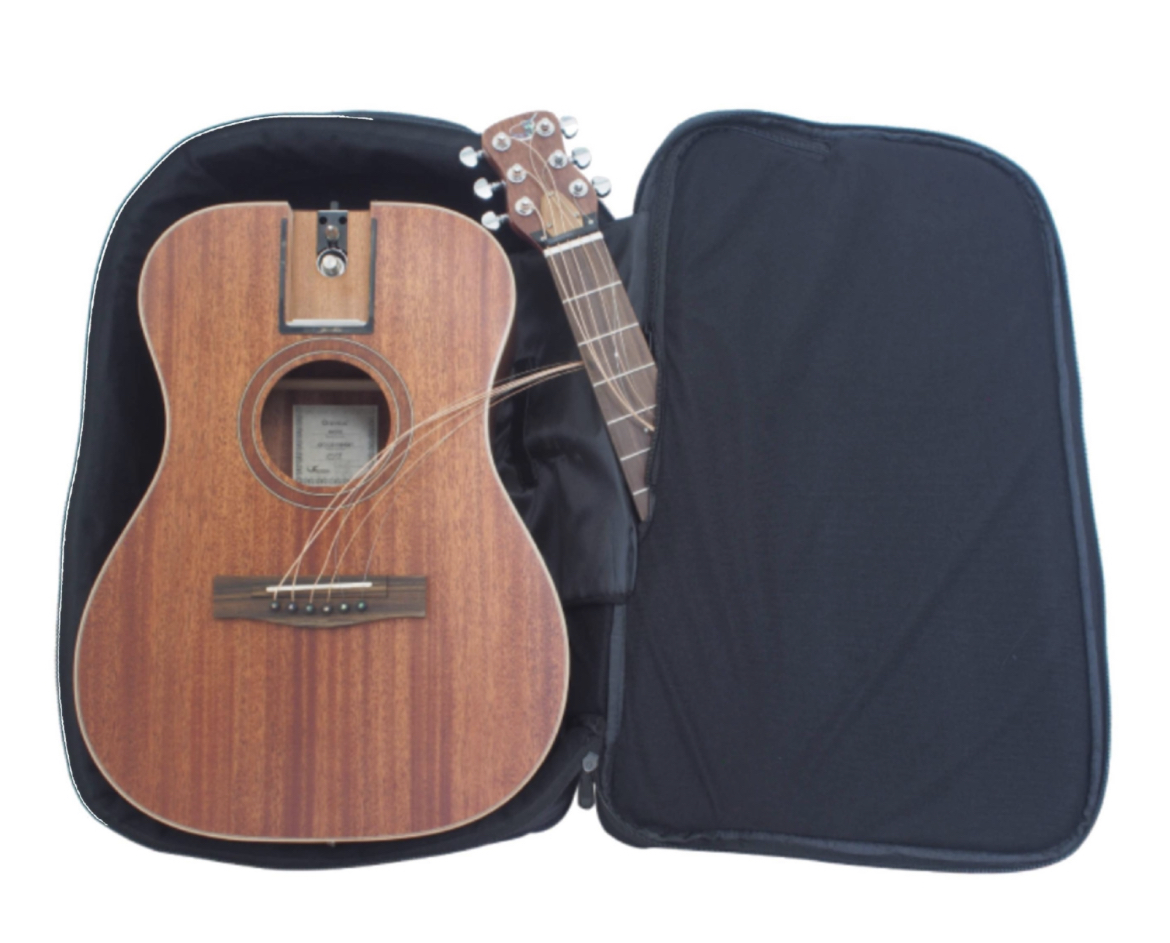The Advantages of a Carbon Fiber Guitar: Why You Should Consider Making the Switch
- John Drage
- Aug 10, 2024
- 3 min read

When most people think of guitars, they picture classic wooden instruments, lovingly crafted from mahogany, spruce, or rosewood. However, in recent years, a new material has been making waves in the guitar world: carbon fiber. Once reserved for high-performance sports equipment and aerospace technology, carbon fiber is now being used to create some of the most innovative guitars on the market. If you’re curious about what makes a carbon fiber guitar special, here’s a deep dive into the advantages that this modern material brings to the table.
1. Durability and Longevity
One of the most significant advantages of carbon fiber guitars is their unparalleled durability. Unlike wood, which is susceptible to warping, cracking, and other damage from environmental changes, carbon fiber is incredibly resilient. Whether you’re playing in a humid rainforest, a dry desert, or just your basement, a carbon fiber guitar won’t be affected by temperature or humidity changes. This makes it a fantastic option for traveling musicians or anyone who wants an instrument that will last a lifetime without the need for constant maintenance.
2. Consistent Sound Quality
Wooden guitars can change their sound over time as the wood ages and reacts to environmental factors. While this can sometimes be desirable, it can also lead to unpredictability in how your instrument sounds. Carbon fiber, on the other hand, provides consistent sound quality. Its resistance to environmental changes ensures that your guitar will sound just as good in the future as it did the day you bought it. For musicians who value reliability and consistency, this is a major plus.
3. Lightweight and Comfortable
Carbon fiber is known for being both strong and lightweight, making carbon fiber guitars much easier to handle compared to their wooden counterparts. This lightweight nature is especially appreciated during long performances or practice sessions, reducing strain on your shoulders and back. If you’ve ever experienced fatigue from holding a heavy guitar for extended periods, switching to a carbon fiber model could be a game-changer.
4. Innovative Design Possibilities
Carbon fiber offers unique design possibilities that simply aren’t feasible with wood. For instance, some carbon fiber guitars feature innovative shapes and structural designs that improve sound projection and resonance. Additionally, the material allows for sleeker, more modern aesthetics, which can appeal to guitarists looking for an instrument that stands out visually as well as sonically. The freedom from traditional construction methods opens up new creative avenues for both builders and players.
5. Low Maintenance
Unlike wood, carbon fiber requires very little maintenance. There’s no need to worry about refinishing, humidity control, or the other myriad concerns that come with a traditional wooden guitar. Simply put, a carbon fiber guitar is ready to go whenever you are. This low-maintenance nature means you can spend more time playing and less time worrying about the care of your instrument.
6. Sustainability
As environmental concerns continue to grow, the sustainability of materials used in guitar making is becoming more important to many musicians. The production of traditional wooden guitars often involves the harvesting of rare and slow-growing trees, which can have significant environmental impacts. Carbon fiber, while not without its own environmental footprint, offers a more sustainable alternative as it doesn’t rely on deforestation or the depletion of natural resources. Moreover, the durability of carbon fiber guitars means they won’t need to be replaced as often, reducing waste in the long run.
7. Unique Tonal Qualities
While carbon fiber guitars have a different tonal quality than wooden guitars, many players appreciate their unique sound. Carbon fiber typically produces a very clear, bright tone with excellent sustain. While the sound profile might not be identical to wood, many musicians find that the distinct tone of carbon fiber guitars adds a new dimension to their playing. Moreover, the consistency in tone mentioned earlier ensures that the guitar will always perform reliably in different settings.
Conclusion
Carbon fiber guitars represent a significant leap forward in guitar technology, offering a host of advantages over traditional wooden models. From their durability and consistent sound quality to their lightweight design and low maintenance requirements, these instruments are ideal for modern musicians who demand both performance and convenience. While they may not entirely replace wooden guitars, carbon fiber guitars offer a compelling alternative that’s worth considering for any serious guitarist. Whether you’re a touring professional or a passionate hobbyist, the benefits of a carbon fiber guitar might just make it the perfect addition to your collection.





Comments